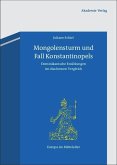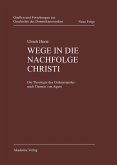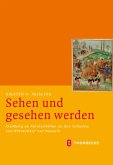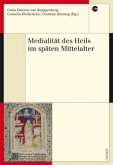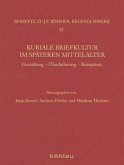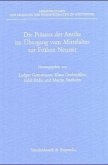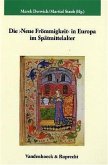This book traces the rise and decline of two rival intellectual traditions in later-medieval trinitarian theology, one of them predominantly Franciscan, the other predominantly Dominican. Disagreeing about the way to understand the identification in John's Gospel of the second person of the Trinity, the Son, with the Word, the two traditions clashed over the issues of concepts and concept formation, the category of relation, counterfactual logic, and the use of authority. Considering more than seventy theologians from the period, the book presents an overview of the debate, while also including detailed studies of the trinitarian views of such thinkers as Thomas Aquinas, Henry of Ghent, John Duns Scotus, Peter Auriol, William Ockham, Walter Chatton, and Gregory of Rimini.
"Russell Friedman's work is an outstanding presentation of the development of medieval Trinitarian theology between 1250 and 1350. At over a thousand pages in length, it is perhaps the most significant study of any topic of medieval philosophy or theology to have been written in the past fifty years. The fact that much of the research is grounded in Friedman's own critical or semi-critical/working editions of medieval manuscripts makes the contribution that much more significant. In short, one can finally state that Friedman's magisterial work has replaced Michael Schmaus's as the authoritative study of late thirteenth- and early fourteenth- century Trinitarian theology .... a magisterial work and will certainly establish itself as the authoritative account of medieval Trinitarian theology". John T. Slotemaker (Fairfield University) in Religious Studies Review (39, 1) 2013, p. 43
"an outstanding and comprehensive work on theological and philosophical discourses on the Trinity ininity in the period 1250-1350 .....a work of the highest scholarly standards on an area of historical theology that remains largely ignored in today's scholarly debates. This work will undoubtedly remain the primary point of reference for many years to come" Rik Van Nieuwenhove, Mary Immaculate College in Speculum (89,1) 2014, pp 197-199 - DOI: http://dx.doi.org/10.1017/S0038713413003837 (About DOI), Published online: december 2013
"an outstanding and comprehensive work on theological and philosophical discourses on the Trinity ininity in the period 1250-1350 .....a work of the highest scholarly standards on an area of historical theology that remains largely ignored in today's scholarly debates. This work will undoubtedly remain the primary point of reference for many years to come" Rik Van Nieuwenhove, Mary Immaculate College in Speculum (89,1) 2014, pp 197-199 - DOI: http://dx.doi.org/10.1017/S0038713413003837 (About DOI), Published online: december 2013


